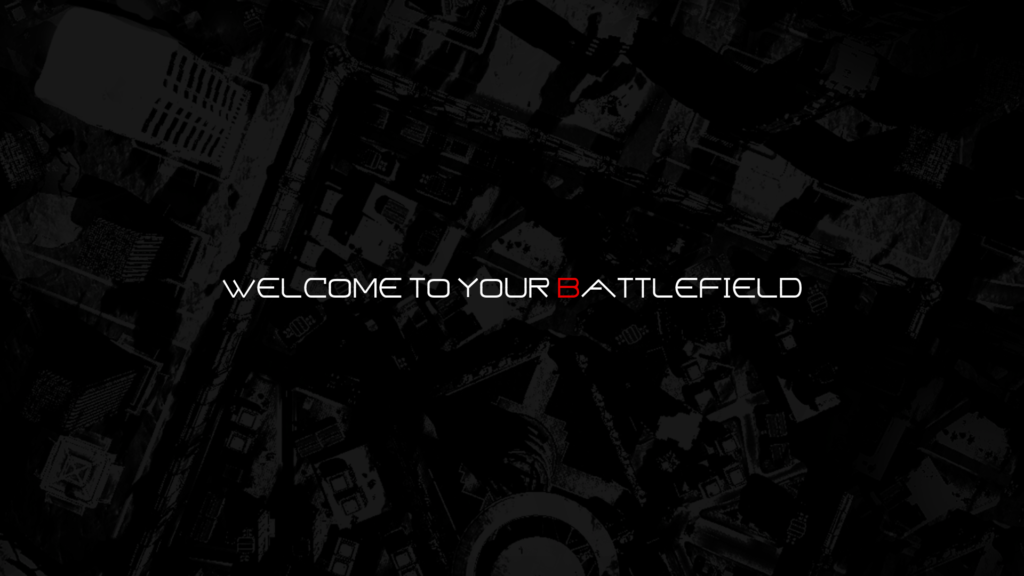
Surprise! Daemon X Machina from Marvelous and publisher XSeed is suddenly available on Steam! We’ve recently covered it on the Switch here at Real Otaku Gamer (take a gander at our original review here), but since the abrupt announcement of the Steam release, it’s time to climb into the mechs once again and take another spin! So without further ado, let’s get down to brass tacks and revisit Daemon X Machina for the PC!
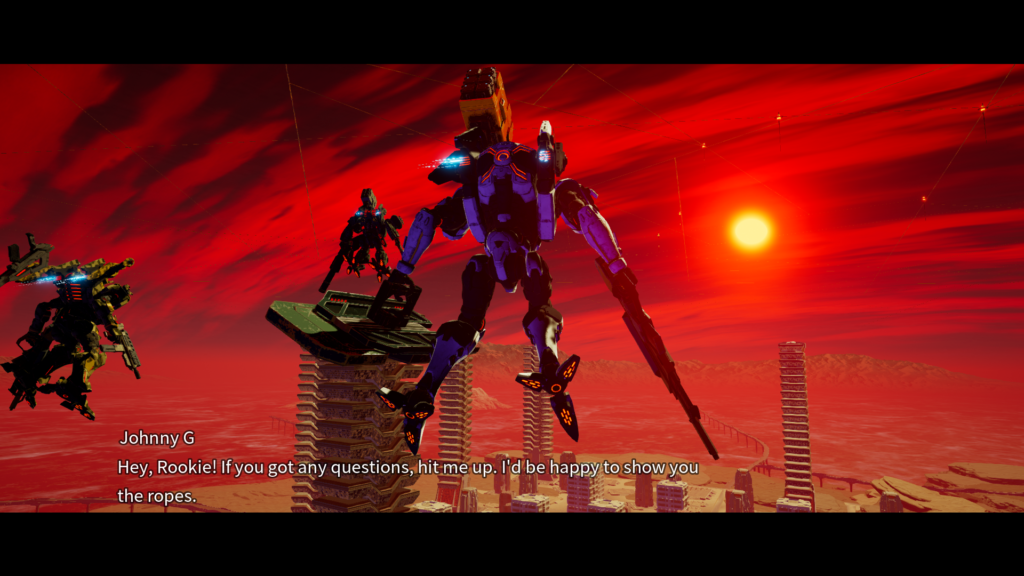
In Daemon X Machina, you control an Outer, a human specially suited to pilot mechs called Arsenals. Outers are uniquely suited to this task and end up becoming mercenaries for a variety of corporations and groups in the war against the AIs. There’s plenty more plot and it gets dense and convoluted. Unfortunately, that plot never really manages to go anywhere and it’s honestly more confusing than anything else. New characters are constantly getting tossed about making grandiose statements and promptly vanishing again. Sure, some of the pilots stick around to help you out and whatnot, but all the posturing that hints at an overarching storyline and fascinating world? It’s nowhere to be seen as you progress through the story.
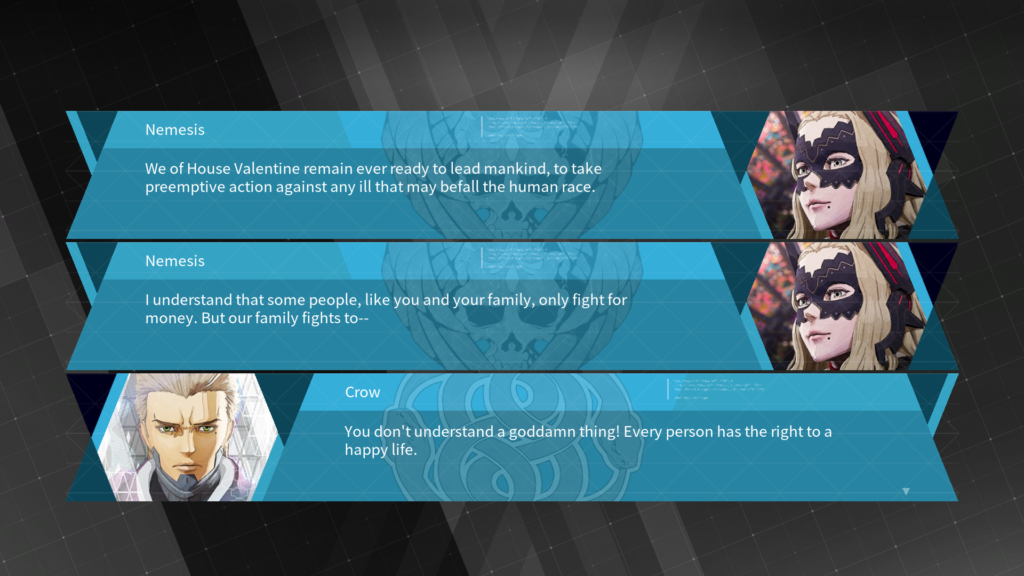
It’s incredibly disappointing that Daemon X Machina isn’t more compelling, as it’s an absolutely stunningly gorgeous game. Running on a high-end gaming PC, it’s absolutely smooth as silk with no slowdown, no lag, clean, crisp imagery, and a unique cel-shaded style that’s simply pleasing to the eye. The character designs are fantastic, the mechs are believable, and the backgrounds are straight out of an anime. This is a beautifully design game on a visual level in every way. The inordinate amount of care taken in design and graphic implementation on Daemon X Machina is an absolute delight.
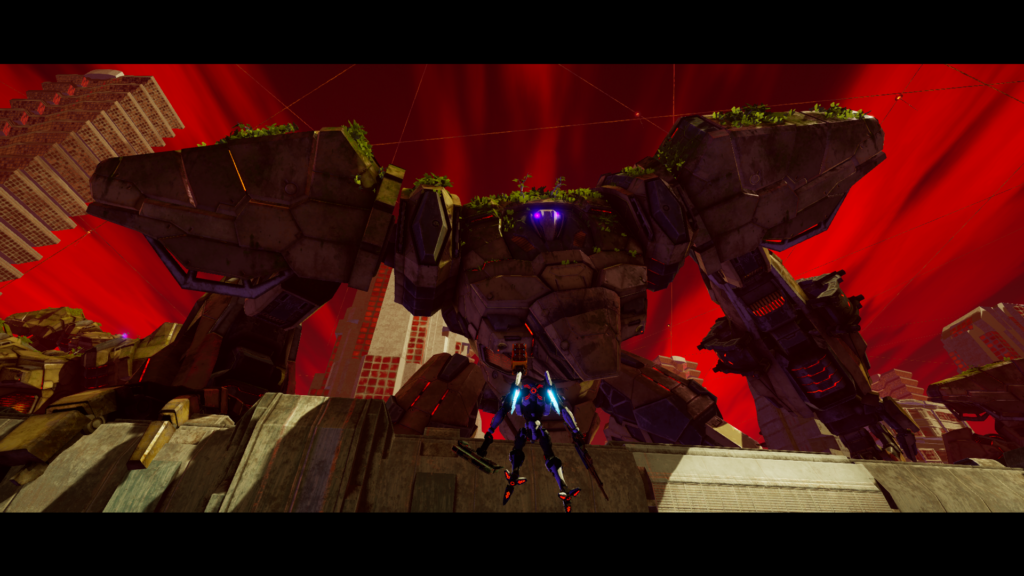
Sadly, apart from the graphics, there’s really not much here. Sure, you have a mech that’s incredibly cool looking and wildly modular. You can change out pretty much any part on your mec h and you have a ridiculous number of weapons at your disposal. You just won’t need them for much. Occasionally there’s a level that pops up that requires a bit more skill, but for the most part, you port in, listen to an overly complex mission statement for flavor, then pop into a battleground. Simply lock on and shoot anything that moves while you float around and it’s ‘Mission Complete’. Most enemies require almost no skill to defeat and if you do manage to take damage, it’s easy to heal on the battleground.
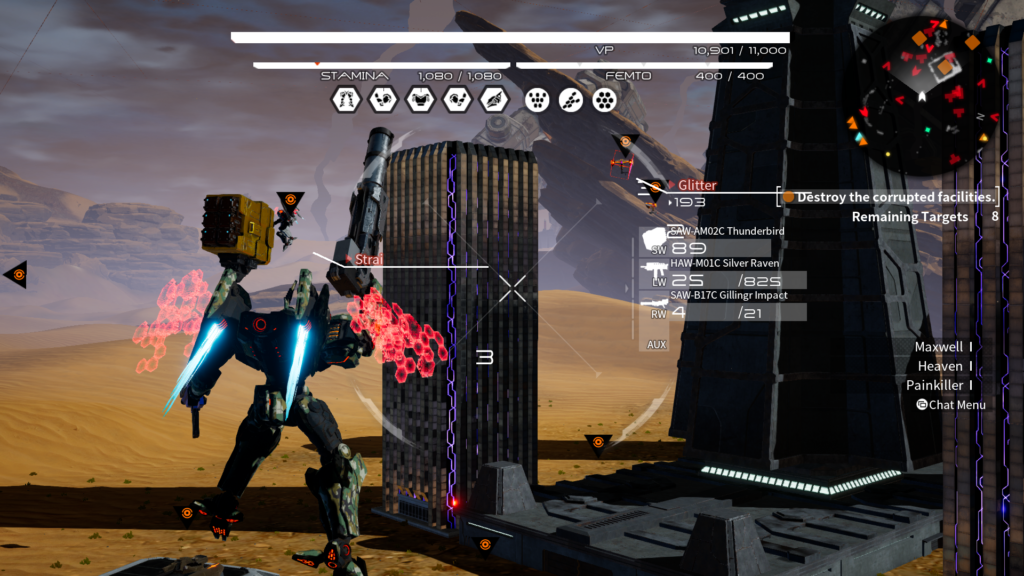
For a game that looks this good, it’s almost as if no one bothered to see if it was any fun. Imagine if a mid-level executive just saw the game, said ‘That looks great Phil, send it out for publication’, and didn’t bother to actually see if the game was fun. On top of the incredibly basic missions (they do get better here and there, but not often), the actual controls are way less exciting than you might hope. Visually, there’s almost no way not to expect performance on a level with Zone of the Enders here, but what you actually get is far less exquisite than that. Daemon X Machina controls terribly. You can run across the ground or jump up into the air and kind of float about. There’s no dash, no significant special moves, and your mech isn’t particularly agile. It even has trouble going down to the ground until you get some equipment that allows you to dive downwards. Hmmm. Here’s a multi-ton piece of steel that floats for no apparent reason, using unspecified fuel and refuses to fall. Just weird.
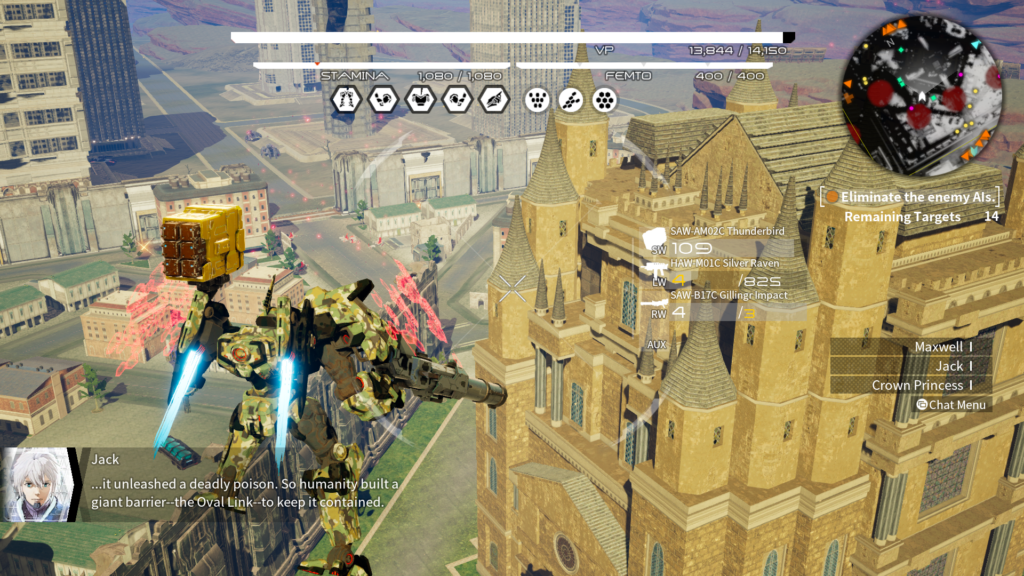
Battles in Daemon X Machina are usually over so fast you’ve barely got any idea what’s going on, and while you’re fighting, your partners and other mercenaries are talking in the corner, but you barely notice because you’re busy actually playing the game. It’s nice to add some plot and depth, but it just ends up getting missed or ignored more often than not. And as you blast your way through the enemies, there’s no real sense of accomplishment. It’s easy to feel like you’re just spamming the fire buttons because you basically are. There’s no reason to try harder until you end up with a bunch of enemy mechs or an Immortal, and either way, you’ve likely been prepped for it with what happens to be just the right weapon.
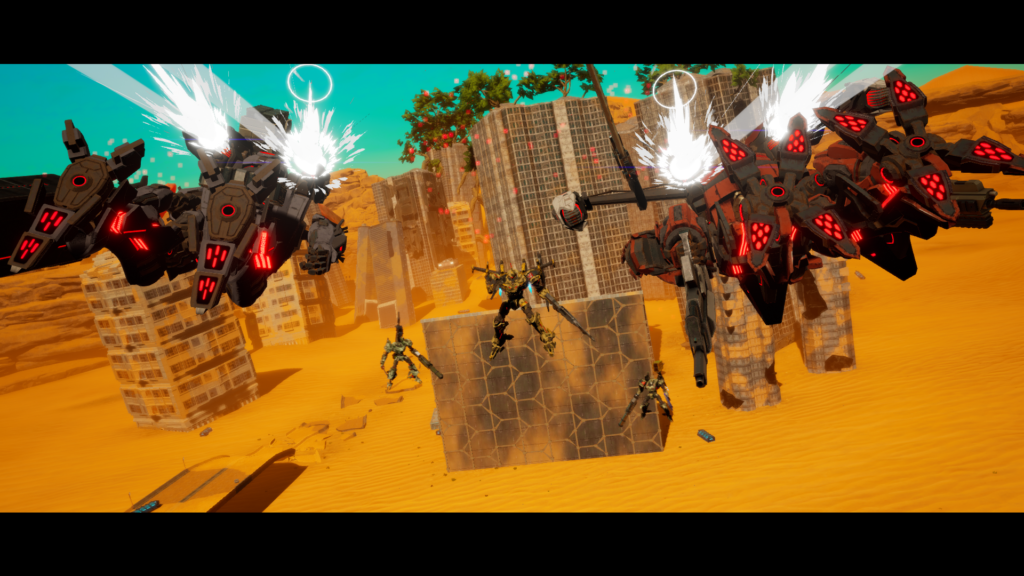
There’s no real challenge here, especially not in story mode. Multiplayer might be better, but the main game definitely suffers from some balance and design issues that never really get better through the roughly 20 hours that the main quest takes. However, don’t let the above dissuade you. While it won’t appeal to everyone, the speed and adaptability of weapons in Daemon X Machina will definitely appeal to some gamers. It’s pretty, it’s fast, and if you want to smash stuff with mechs, you’re mostly good. There’s not as much environmental damage as, say, Mechwarrior 5, but you can smash some stuff, and sure, the story isn’t nearly as good as a Robotech storyline, but chances are you’re not playing it for the story. If you are playing it for the story, simply don’t, as it’s a jumble morass of confusion that doesn’t every really coalesce in a meaningful way.
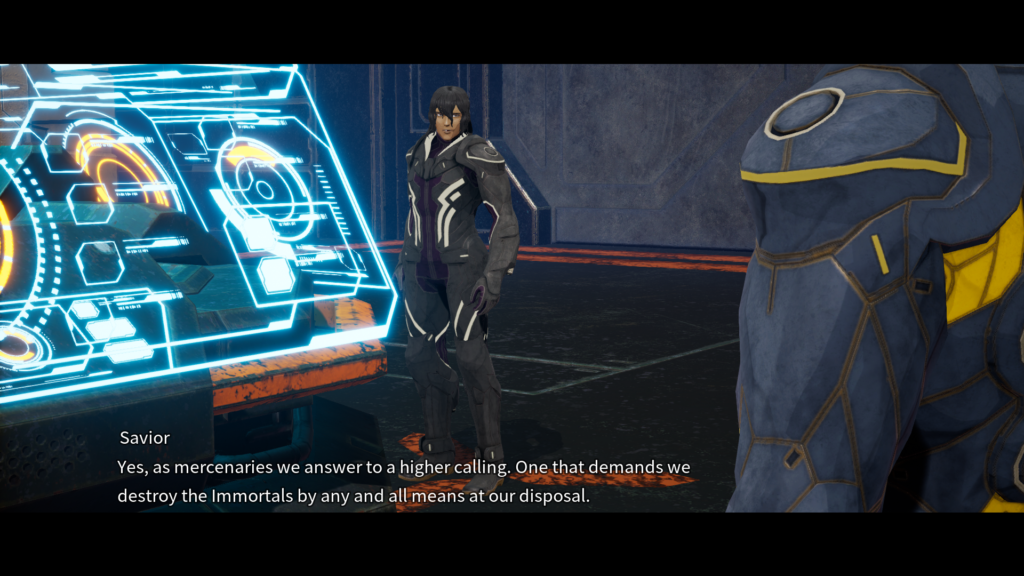
In addition to the excellent graphic design, it would be remiss not to point out that the soundtrack in Daemon X Machina is absolutely excellent. There’s some neo-classical, some very edgy metal, and a mix of both. It works well and the music is unique and thoroughly enjoyable. The physical version of the soundtrack is three discs, 45 tracks, and six tracks are available on Spotify free edition, so everyone can enjoy it. The soundtrack in its entirety is also available on Amazon and iTunes. The music not only suits the game well, but it’s an excellent composition that stands well on its own and is highly recommended.
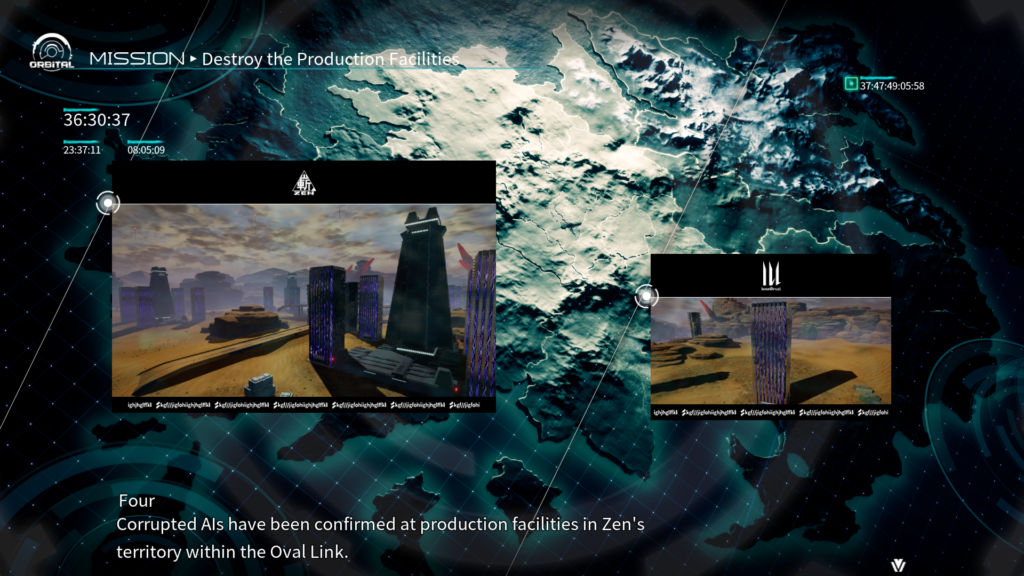
Daemon X Machina fills a niche that gets ignored too often, that of the fast-paced mech adventure. Unfortunately, it only does a passable job here and there, and definitely never reaches its full potential. By the time you make it to C ranking, chances are good that you’ll simply be skipping story elements in the hopes for another Immortal battle, but it’s still shooting and smashing fun at a basic level. There simply aren’t enough good, well-designed mech games, and it’s definitely okay to settle now and again to get your giant robot fix.
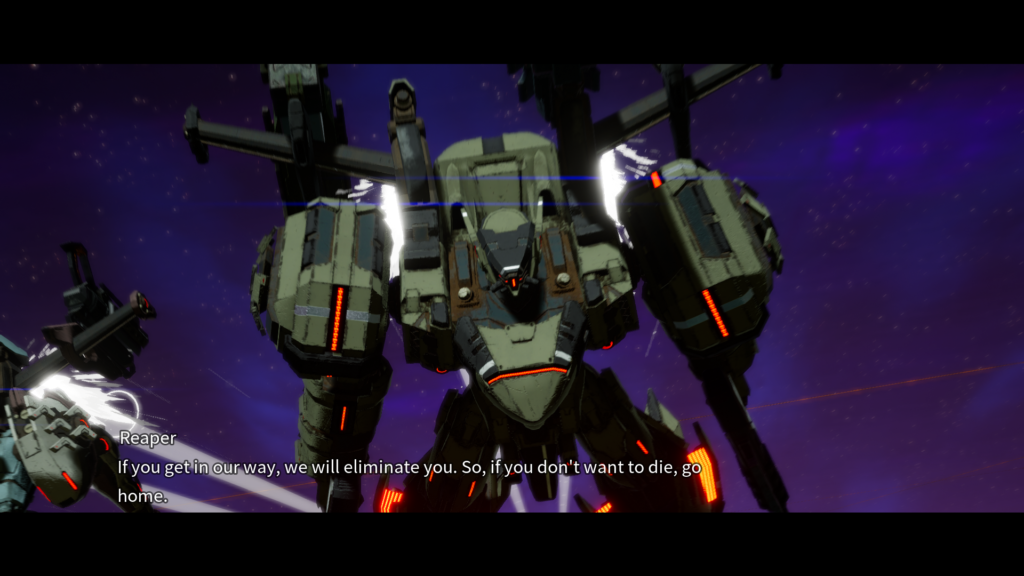
At $47.99, Daemon X Machina is definitely a premium title and unless you play it online, chances are you won’t be getting your money’s worth out of this one. Servers were underpopulated as of the writing of this review and it is based solely on the single player experience of the game. Daemon X Machina is a very inconsistent game, with excellent production values, stunning graphics, and cutting edge music, but suffers from a weak storyline and somewhat repetitious gameplay. It’s pretty much the definition of a mixed bag and that’s a tough sell for some players, especially at a premium price. It’s hard to say that it’s not worth looking at, because it most definitely is, but at the same time, it’s probably not a day one purchase, especially for the discerning PC gamer. Check it out, but maybe wait for a sale, because chances are good it will go down in price eventually.

This review was based on a digital copy of Daemon X Machina for Steam provided by the publisher. It was played on an I7-8700K with 16 GB of DDR4-3000 RAM, an Asus GeForce GTX 1080 ROG Strix graphics card. We definitely need a mech game renaissance as they’re always fun and the genre has been stagnant for a long time! Note: Daemon X Machina is a fast-paced combat game, and it is difficult to get solid action screenshots with the software used. All screenshots are actual gameplay images. I’m going to go watch The Big O and relax now…
